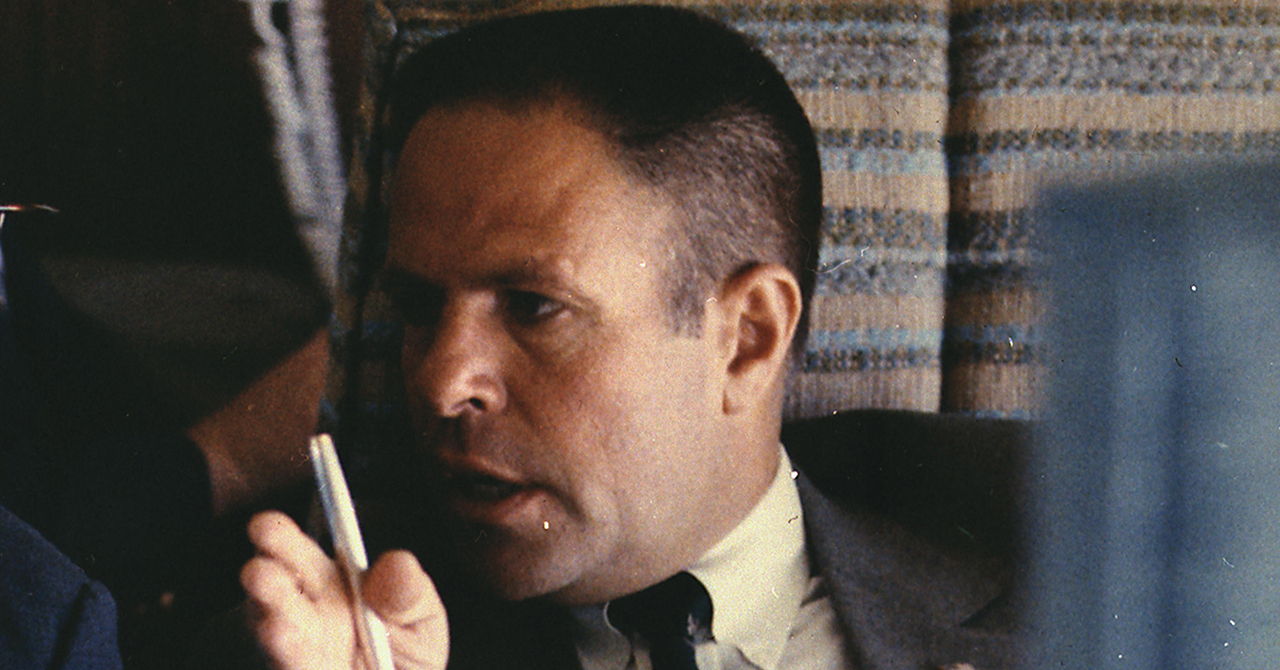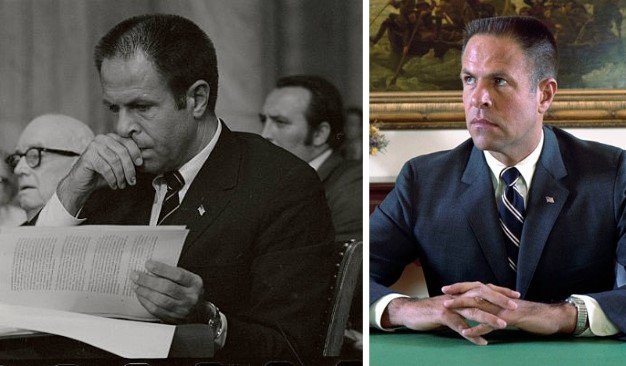Bob Haldeman was a man who stood at the intersection of business and political power, shaping history from behind the scenes. Known for his disciplined leadership and close partnership with President Richard Nixon, his career remains a fascinating study of ambition, loyalty, and controversy.
Quick Bio
| Full Name | Harry Robbins “Bob” Haldeman |
|---|---|
| Born | October 27, 1926 – Los Angeles, California, U.S. |
| Died | November 12, 1993 – Santa Barbara, California, U.S. |
| Nationality | American |
| Education | University of California, Los Angeles (UCLA) |
| Occupation | Business Executive, Political Advisor |
| Known For | White House Chief of Staff under President Richard Nixon |
| Political Affiliation | Republican |
| Notable Roles | Advertising Executive at J. Walter Thompson, Nixon Campaign Aide, Chief of Staff |
| Key Event | Involvement in the Watergate Scandal |
| Legacy | Known for managerial discipline and controversial role in U.S. political history |
Early Life and Education

Born in Los Angeles, California, Bob Haldeman grew up in an affluent and disciplined household that valued hard work and achievement. His early years reflected a keen sense of order, responsibility, and leadership that would later define his career. At UCLA, Haldeman excelled both academically and socially, joining the prestigious fraternity Beta Theta Pi and serving as student body president. These formative experiences taught him the art of organization and strategic communication—skills that would later propel him into both corporate and political success.
Business Career Before Politics

Before stepping into the world of Washington politics, Bob Haldeman had already carved out a successful business career. He worked with J. Walter Thompson, one of the largest advertising agencies in the world, where he climbed the corporate ladder through sheer hard work and meticulous attention to detail. Known for his no-nonsense approach, Haldeman excelled in client management, project execution, and leadership.
His time in the advertising industry taught him how to manage complex operations—skills that seamlessly transferred to his later political career. The business discipline he mastered at J. Walter Thompson became his defining characteristic in the White House.
Entry into Politics
Haldeman’s political career began when he volunteered for Richard Nixon’s 1956 vice-presidential campaign. His efficiency, professionalism, and understanding of public image impressed Nixon deeply. Over the next decade, Haldeman became one of Nixon’s most trusted aides, handling logistics, communications, and campaign organization.
By the 1968 presidential campaign, Haldeman had become an essential strategist. He built a campaign machine modeled on corporate systems—streamlined, goal-driven, and efficient. This method not only helped Nixon win the presidency but also set new standards for political campaign management.
Rise to Power in the White House

When Nixon entered the White House in 1969, Bob Haldeman was appointed Chief of Staff, effectively becoming the second most powerful man in Washington. He controlled access to the president, coordinated staff duties, and supervised the flow of information. Colleagues often described him as disciplined, demanding, and uncompromising.
Haldeman implemented a hierarchical structure in the West Wing, bringing order and professionalism to a chaotic political environment. His role was to ensure that Nixon’s time was optimized and that the administration functioned like a finely tuned business operation.
Leadership Style and Management Approach
Haldeman’s leadership style was both admired and criticized. His insistence on order and secrecy earned him a reputation as Nixon’s gatekeeper. Supporters saw him as a model of efficiency; critics accused him of creating a culture of isolation around the president.
In many ways, his business executive mindset influenced how he ran the White House. He valued structure, delegation, and loyalty—principles that reflected his advertising background. Every memo, schedule, and meeting was meticulously organized under his supervision, reflecting his belief that management discipline was key to political success.
Role During the Nixon Presidency
As Nixon’s closest aide, Bob Haldeman had a hand in nearly every major decision. He managed communications, oversaw staff appointments, and helped shape policy messaging. His presence was so influential that many referred to him as Nixon’s “alter ego.”
Haldeman’s ability to translate Nixon’s ideas into actionable strategies made him indispensable. Yet, his strict control over information sometimes isolated the president from dissenting opinions—a factor historians believe contributed to some of the administration’s missteps.
The Watergate Scandal and Downfall
The Watergate scandal became the defining crisis of Haldeman’s career. As investigations unfolded, tapes revealed that he was deeply involved in the cover-up efforts to obstruct justice. His unwavering loyalty to Nixon led him to make decisions that ultimately destroyed his political future.
In 1973, Haldeman resigned as White House Chief of Staff, and the following year he was convicted of conspiracy, obstruction of justice, and perjury. He served 18 months in federal prison. For many Americans, this marked the tragic fall of a man once viewed as a symbol of professional excellence and executive power.
Life After Prison
After his release, Bob Haldeman avoided the political spotlight. He returned to California and focused on his business interests, managing real estate ventures and writing about his experiences. He published his memoir, “The Ends of Power,” which provided an insider’s perspective on the Nixon administration.
Although his reputation was permanently scarred, Haldeman’s writing offered valuable insights into the inner workings of government and the complexities of political decision-making.
Legacy and Historical Impact
The legacy of Bob Haldeman is complex. On one hand, he is remembered as one of the most organized and effective chiefs of staff in U.S. history. On the other, his involvement in Watergate forever linked his name to one of America’s darkest political scandals.
Nevertheless, his managerial innovations reshaped how future administrations would operate. His model of structured communication and executive discipline became a blueprint for later political teams seeking efficiency in the Oval Office.
Haldeman’s Relationship with Richard Nixon
The relationship between Haldeman and Nixon was built on mutual trust and loyalty. Nixon relied heavily on Haldeman to manage sensitive matters and maintain order within the administration. However, that same loyalty contributed to both their downfalls.
Despite their shared political ruin, Nixon later acknowledged Haldeman’s competence and dedication, describing him as one of the most capable managers he had ever known.
Lessons from Haldeman’s Career
Haldeman’s life offers valuable lessons about leadership, loyalty, and accountability. His story demonstrates how discipline and management excellence can drive success—but also how absolute loyalty without moral restraint can lead to disaster.
For modern leaders in business or politics, Haldeman’s experience underscores the importance of ethical decision-making alongside professional skill.
Personal Life and Character
Beyond politics, Bob Haldeman was a devoted family man. Friends described him as warm, humorous, and deeply private. He enjoyed sailing, sports, and spending time with family away from the public eye.
Despite the controversies, those close to him remembered a man of conviction and principle—one who believed deeply in order, loyalty, and service.
Final Years and Death
In his later years, Haldeman withdrew from national attention. He focused on business, writing, and mentoring young executives. On November 12, 1993, he passed away in Santa Barbara, California, at the age of 67. His death closed a chapter of American history that continues to be studied for its lessons on power and integrity.
Conclusion
Bob Haldeman’s journey from advertising executive to White House powerhouse remains one of the most intriguing stories in U.S. political history. His talent for management and strategy made him indispensable, yet his blind loyalty led to his undoing.
Today, he stands as both a model of efficiency and a warning about the dangers of unchecked power. His dual legacy—as an executive genius and political casualty—continues to shape discussions on leadership, ethics, and governance.
FAQs
Who was Bob Haldeman?
He was an American businessman and political aide who served as White House Chief of Staff under President Richard Nixon.
What was Bob Haldeman’s role in Watergate?
He was involved in the cover-up of the Watergate break-in, leading to his conviction and imprisonment.
What did Bob Haldeman do before politics?
He worked as an advertising executive at J. Walter Thompson, one of the largest ad agencies in the world.
Did Bob Haldeman write any books?
Yes, he authored “The Ends of Power,” offering his account of the Nixon administration and the Watergate scandal.
What is Bob Haldeman’s legacy?
He is remembered as both a brilliant manager and a controversial political figure whose downfall serves as a cautionary tale.
Visit for more information:- existingformore

